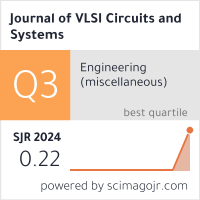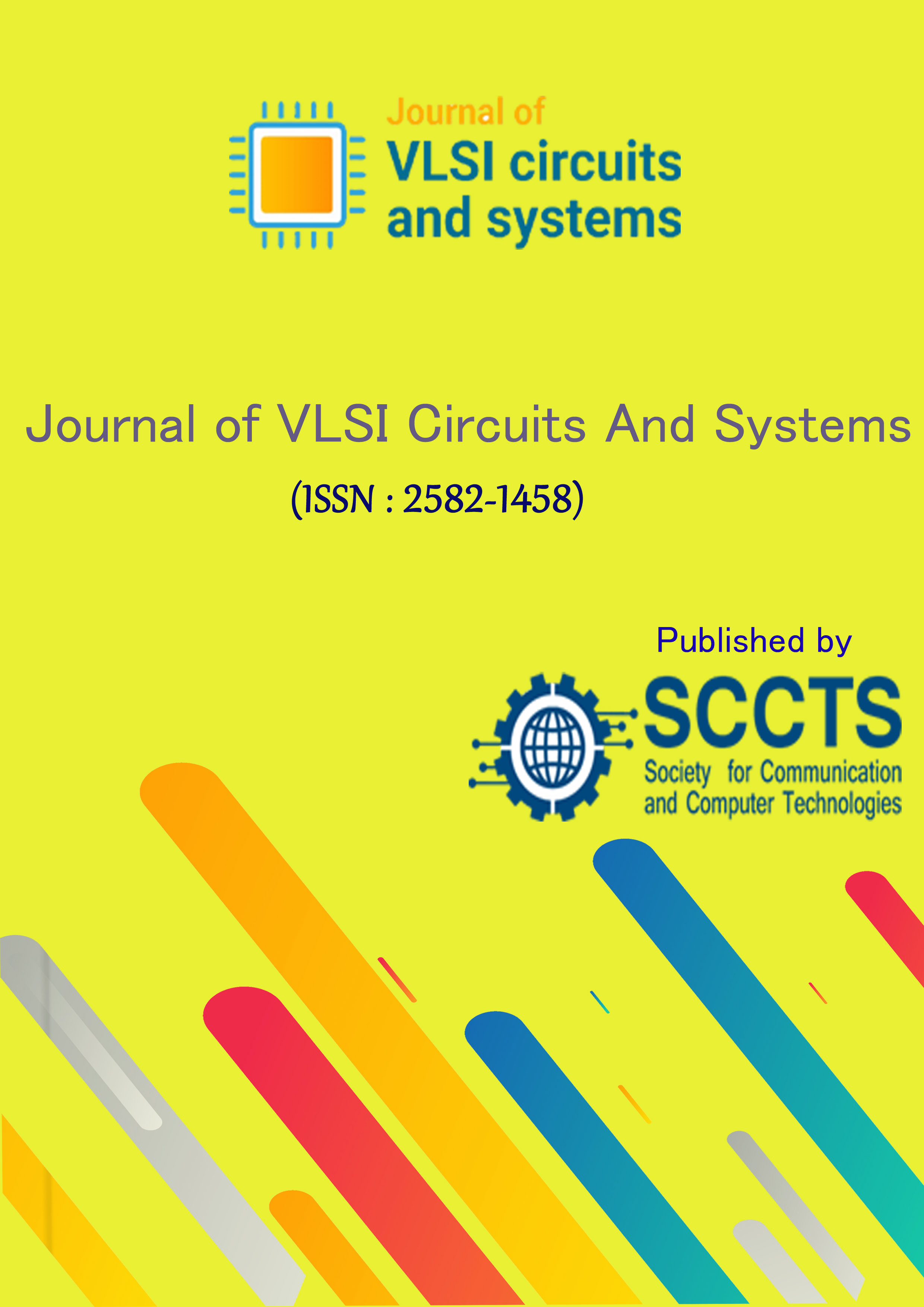RoBA Multiplier-Driven FIR Filter Synthesis: Uniting Efficiency and Speed for Enhanced Digital Signal Processing
DOI:
https://doi.org/10.31838/jvcs/06.02.03Keywords:
Approximation multiplier, Energy-efficient computation, Accuracy trade-off, Performance evaluation, FIR filter, Multiplication strategies, Speed optimizationAbstract
Abstract —The main objective of this project includes, enhance the computational efficiency of DSP systems which make them operate more efficiently. Traditional DSP computations can be slow, so sometimes it's more important to be fast than completely accurate. To craft a Digital Signal Processor (DSP) systems even faster and save energy, researchers have designed circuits that approximate calculations, sacrificing a bit of precision. By this proposed solution, we designed a RoBA multiplier type for filters that rounds numbers to the closest whole number. By simplifying the multiplication process, this approximation reduces system’s size and speeds up the operation. Considering the fact that the multiplier typically functions at a slower pace compared to other components, this adjustment is anticipated to enhance the filter's overall efficiency. We compared the Vedic multiplier to the proposed ROBA multiplier. The acquired results showcase the power, area, number of slice LUTs, number of bonded Input/Output Buffers, and delay related to this multiplier and FIR filters were greatly decreased, while the multiplier speed increased proportionally.
Index Terms— Approximation multiplier, Energy-efficient computation, Accuracy trade-off, Performance evaluation, FIR filter, Multiplication strategies, Speed optimization.















